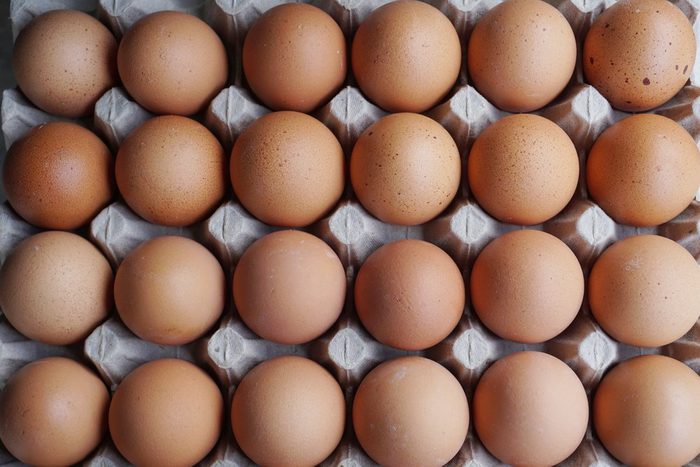
How much protein is in an egg?
Protein is key to any healthy, well-rounded diet. Protein helps to promote muscle recovery, keeps you feeling full, and aids in preventing osteoporosis. The average adult should be consuming 0.8 grams of protein per kilogram of body weight every day. One egg contains six to seven grams of protein and is the perfect food to have for breakfast, lunch, dinner, or a quick snack.
If you’re looking to increase the amount of protein in your diet, try some of these foods that have an even higher protein count than an egg.
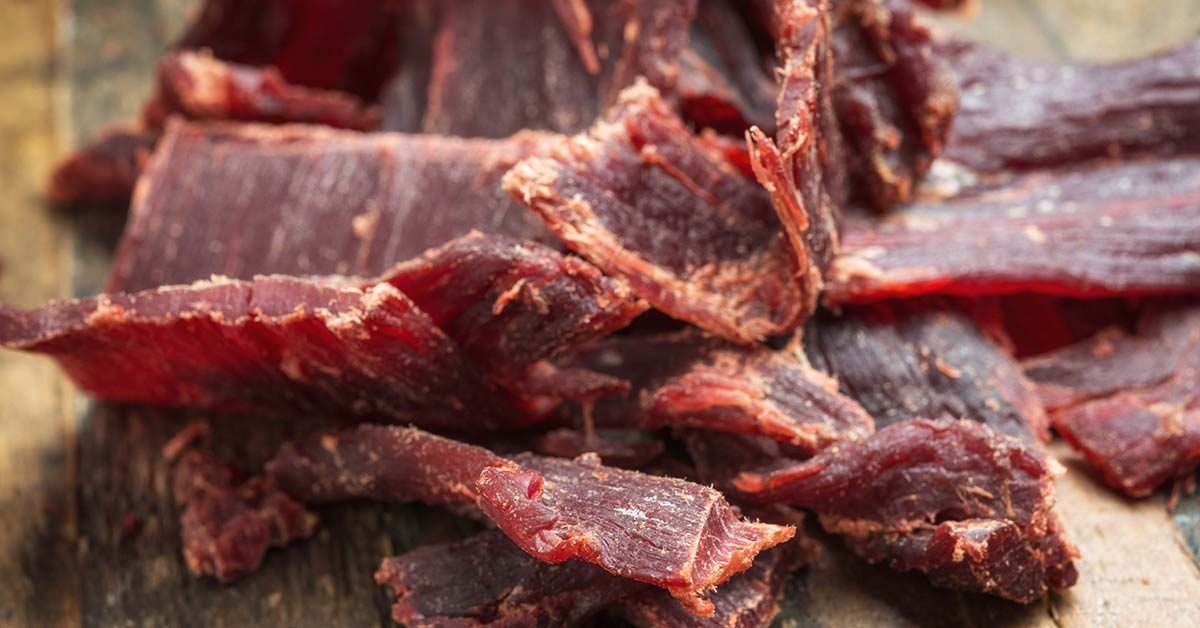
Organic or grass-fed jerky
Jerky is the perfect protein-rich food to snack on between meals. “A one-ounce serving usually provides about 12-15 grams of protein (about twice that of an egg),” says Anne Danahy, MS, RDN. “Look for brands that are lower in sodium and sugar, and minimally processed.” If you follow a plant-based diet, try our milk guide if you just can’t do dairy.
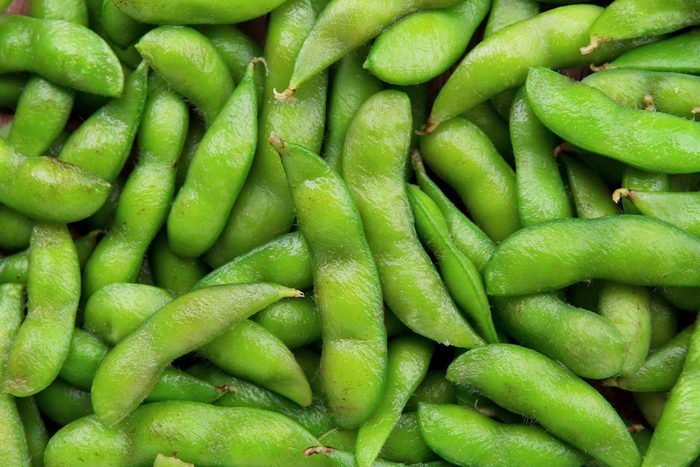
Edamame
This delicious green snack is the perfect addition to any meal. “In just 1 cup, edamame serves up about 26 grams of protein, iron, and calcium, as well as one-third of your recommended daily fibre intake,” says Abby Sauer, MPH, RD, a registered dietitian at Abbott and healthy aging expert.
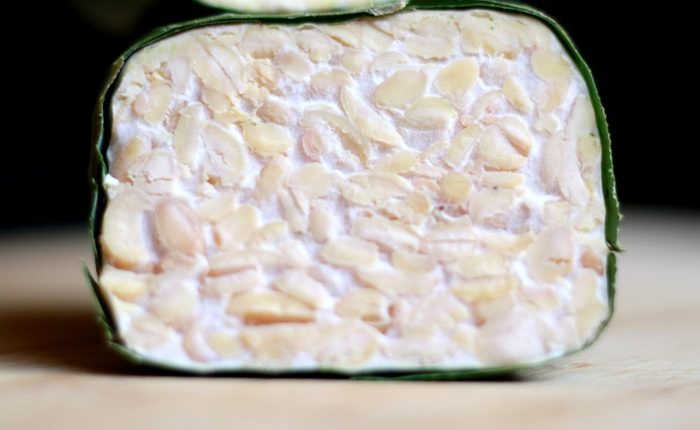
Tempeh
Tempeh is a plant-based protein made from fermented and pressed soybeans. A four-ounce serving provides more than 20 grams of protein, says Danahy. She likes to crumble it into soups, stews, or a stir-fry, or marinate and bake or grill it.
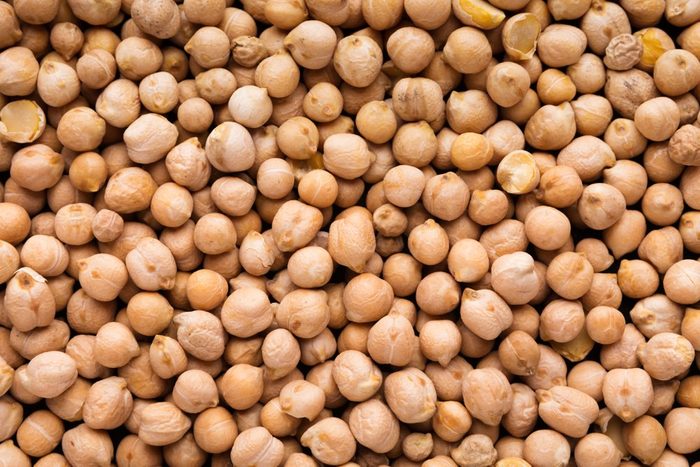
Chickpeas
Chickpeas pack in 15 grams of protein per cup. “They are a great source of magnesium, iron, vitamin B6, folate and zinc and are filled with fibre,” Danielle Keith, a holistic health coach and the founder of CodeGreen Wellness adds. Try our Chickpea and Fennel Meat(less) Ball recipe.
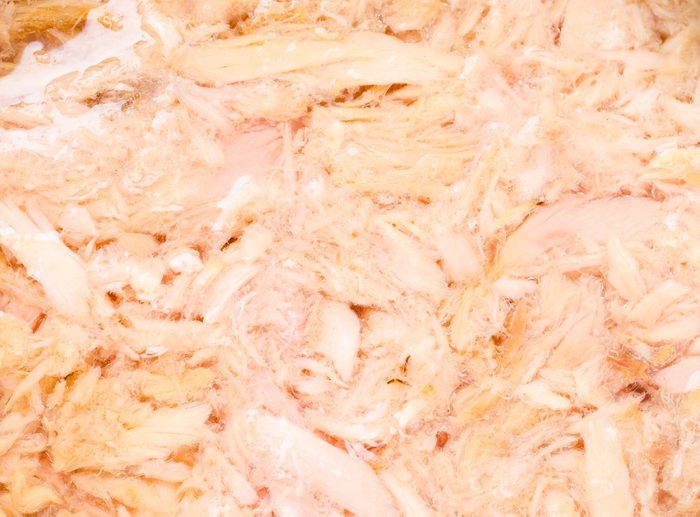
Tuna
Tuna is another food chockfull of protein that Sauer recommends. A five-ounce can contains 32 grams of protein and about 140 calories. Check out our healthy tuna salad recipe that cuts down on calories and fat.
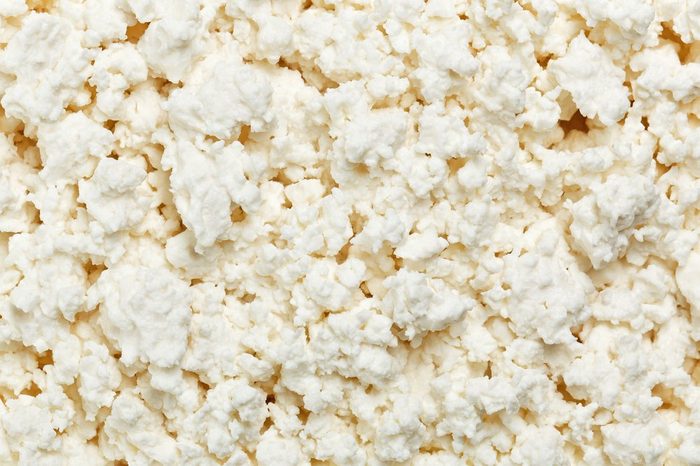
Cottage cheese
Eating cottage cheese with some fruit or vegetables as a light meal or snack is the perfect way to get protein and calcium into your diet. A half-cup serving provides 14 grams of protein. “Look for brands that are made with active cultures; they’ll also provide probiotics,” says Danahy. “Keep in mind that full-fat cottage cheese is higher in calories than nonfat cottage cheese.”
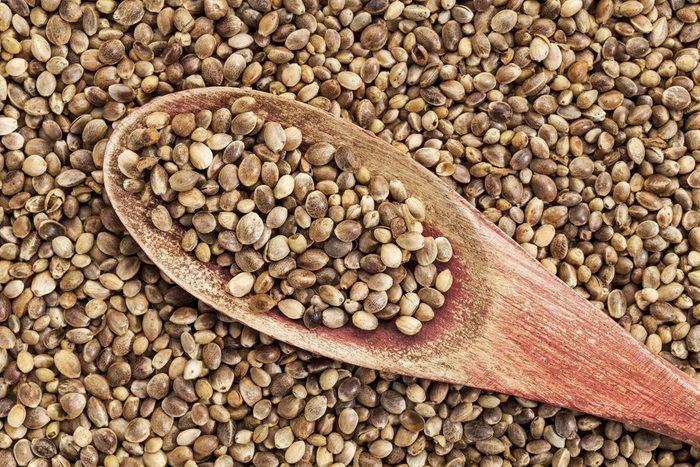
Hemp seeds
Hemp seeds have 11 grams of protein per three-tablespoon serving. “They are actually a complete protein which means hemp seeds contain all of the essential amino acids,” says Keith. “Hemp seeds are filled with fibre, essential omega-3 fatty acids, magnesium, potassium, manganese, phosphorus, vitamin E, zinc, iron, and calcium.” She recommends adding them on top of a salad or mixing them into your smoothie.
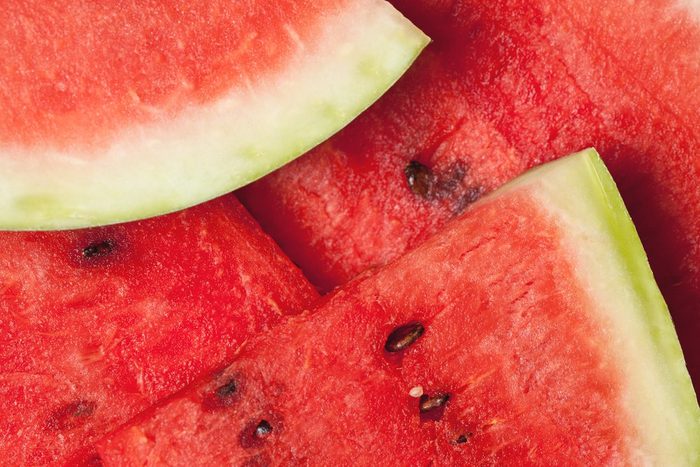
Watermelon seeds
Colene Stoernell, MS, RDN, LDN, a pediatric dietitian specializing in feeding and GI disorders recommends that her clients who follow a vegan diet eat watermelon seeds to get a good source of plant-based protein into their diet. They’re also a great source of iron, magnesium, and zinc. This delicious snack is just starting to gain popularity and is even being turned into butter.
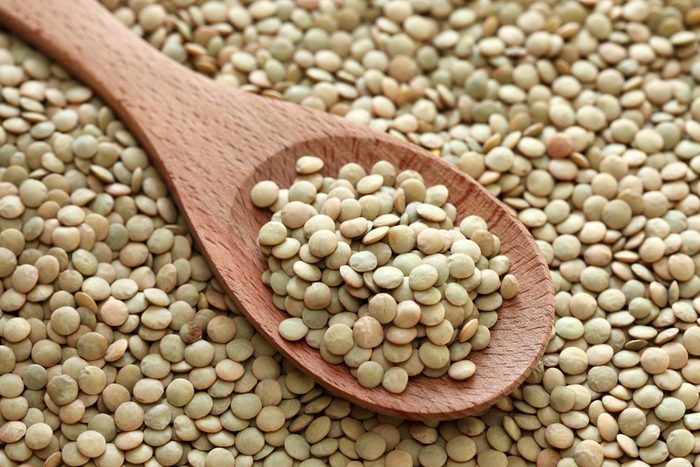
Lentils
One serving of lentils will get you 18 grams of protein and is also a great way to get one third your daily recommended intake of iron and 15 grams of fibre, says Sauer. They’re a great option if you’re looking to eat healthy on a budget. Note: This is what actually happens to your body when you don’t get enough protein.
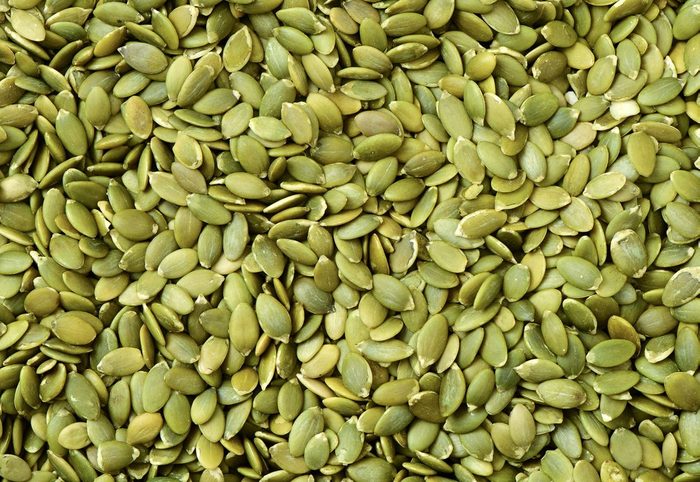
Dried pumpkin seeds
“Dried pumpkin seeds are a protein powerhouse. Just a quarter cup contains 10 grams of protein,” says Lisa Richards, nutritionist and the creator of The Candida Diet. Pumpkin seeds are also a great source of magnesium, vitamin K, iron, zinc, and copper. “One the best things about pumpkin seeds is that they are so easy to incorporate into your diet. Toss them into a salad, blend them into a smoothie, or just sprinkle them with salt and use them as a handy afternoon snack,” says Richards.
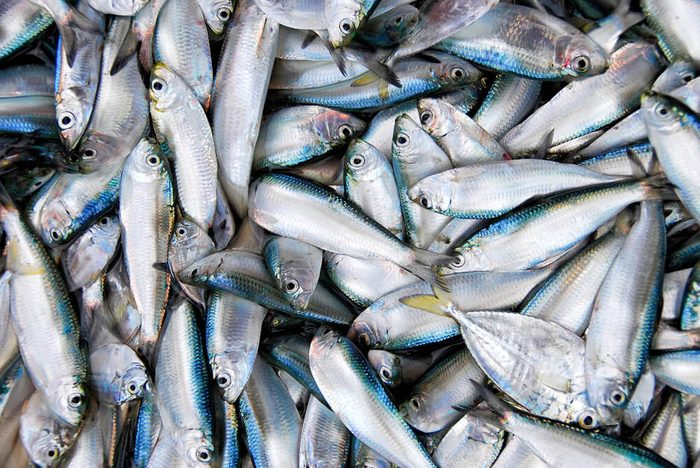
Canned sardines
This tiny fish is full of nutrients. It has over 18 grams of protein per three ounces, says Stella Metsovas, clinical nutritionist and author. They also contain nutrients like selenium, 50 percent of your RDA for vitamin D, and 1,800 mg of EPA and DHA omega-3 fatty acids. Metsovas recommends striving to eat three cans a week.
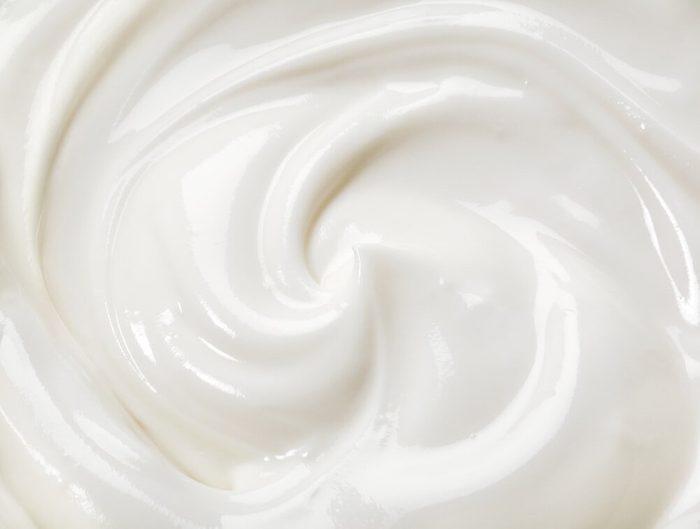
Greek yogurt
“Traditional Greek yogurt is strained to lose the watery whey, resulting in a richer, thicker creamier yogurt with twice the protein and less sugar than regular yogurt,” says Julie Upton, MS, RD, a registered dietitian based in the San Francisco Bay Area and is the co-founder of Appetite for Health. “A cup of nonfat Greek yogurt packs in about 24 grams of protein—the equivalent of four eggs!”
Don’t miss the easy ways you can load up on protein in your smoothies.
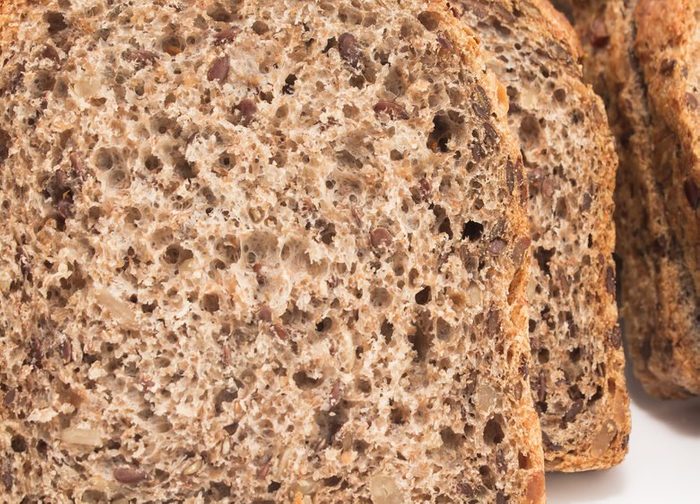
Sprouted grain bread
Two slices of sprouted grain bread contains ten grams of protein, says Kristin Kirkpatrick, RD and former nutrition lead at the Cleveland Clinic Wellness Institute. A perfect way for carb lovers to get in their protein. She recommends topping the bread with avocado, sugar nut butter, or cottage cheese for more nutrients.
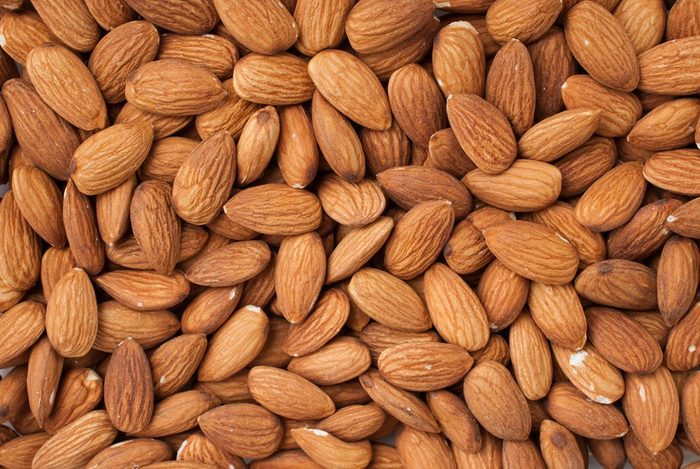
Almonds
Even though they’re small, almonds pack in more protein than an egg. One ounce serving of almonds contains six grams of protein, says registered dietitian Wendy Lopez of Food Heaven Made Easy. “This snack also has four grams of filling fibre, 12 vitamins, and minerals and is a top source of the antioxidant vitamin E.” Tomorrow morning try these high-protein breakfast ideas to start your day right.
